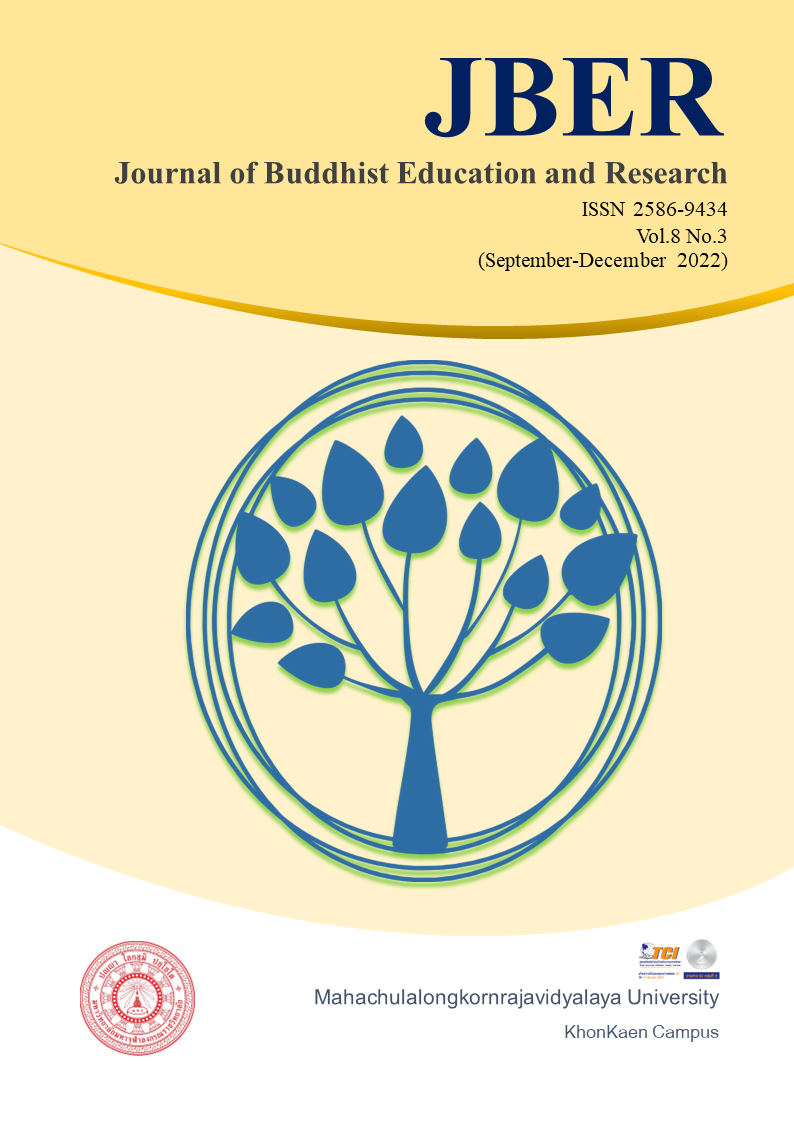THE CONTRIBUTION OF BUDDHIST ETHICS TO IMPROVE SOCIAL WORKERS’ COMMUNICATION SKILL
Keywords:
Buddhist Ethics; Communication Skill, Social Workers.Abstract
The academic article aims to explain about Buddhist ethics in communication and the contribution of Buddhist ethics to improve the social worker’s communication skill. Communication can help individuals and groups to conduct a dialogue with one another effectively. Right speech is the noble way of communication that we maintain and avoid language that could evoke a defensive or aggressive reaction that we take care of four components: observations, feelings, needs, and requests. Different levels of communication that result in dialogue in different walks of social life are the basis of a democratic polity. Communication skill is one of the vital skills for all social workers. One path mentioned in the Eightfold Path is Right Speech or Sammavaca. It is the asset of outward communication or use in the case of addressing someone. The Buddha was aware of the power and function of speech in creating or losing such discursive power.
References
Adler. R. B. & Rodman. G. (1994). Understanding human communication (5th ed.). New York: Harcourt Brace College Publications. Retrieved on July 24, 2021. From https://silo.pub/understanding-human-communication.html.
Devito, J. A. (1997). Human communication: The basic Course (7th ed.). New York: Longman. Retrieved on July 24, 2021. From https://scholar.google.com/.
Ellis, R. & McClintock, A (1990). You take my meaning: Theory into practice in human communication. London: Edward Arnold.
Engelbrecht, L. K. (1999). Introduction to social work. Cape Town: Lanzo. Retrieved on August 10, 2021. From https://docplayer.net/64869562-Introduction-to-social-work-lambert-k-engelbrecht.html
Koprowska, J. (2010), Communication and interpersonal skills in social work. Third Edition, Exeter: Learning Matters.
Kundan Aryal.(2020). The Budda’s Teaching and Roots of Non-violent Communication. A Journal of Polysemic Though.11, 2019-2020, 64-65. Retrieved on July 23, 2021. From https://www.researchgate.net/publication/344341148.
Majjhimanikãya, Chattha Sangãyanã.(1999). (Version 3). Vipassanã Research Institute, Dhammagiri, Igatpuri, Nasik, Maharashtra, India, (Version 3). Retrieved on July 26, 2021. From http://www.accesstoinsight.org/ptf/dhamma/sacca/sacca4/samma-vaca/index.html
Phramaha Pornchai Sripakdee.(2017). Role of Buddhist Ethic and Communication in The Cotemporary World Crisis. Vidyottama Sanatana International Journal of Hindu Sciences and Religious Studies.1(2), 155.
Professor Wimal Dissanayake. (2014). The Idea of Verbal Communication in Early Buddhism. Kulatilaka Kumarasinghe – CriticalGaze,227, p.230.
School of Social Work, University at Buffalo. (2021). Essential Skills and Traits for Social Worker. Retrieved on 24 July 2021. http://socialwork.buffalo.edu/admissions/is-social-work-right-career-for-me/list-of-essential-skills-in-social-work.html
Shaw, A. (2005). Why communication skills? Retrieved on 22 July 2021. from http://learntech.uwe.ac.uk/communicationskills/default.aspx?pageid=137 6.
Trevithick, P. (2008). Revising the knowledge base of social work: A framework for practice. British Journal of Social Work. 38,1212–1237. Retrieved on 25 July 2021. from https://www.researchgate.net/publication/228313521
Trevithick, P., Richards, S., Ruch, G. & Moss, B., (2005). Teaching and Learning communication skills in Social work Education. Social Work Education, 24(4), 409-422. Retrieved on 25 July 2021. from https://www.researchgate.net/publication/313046472





